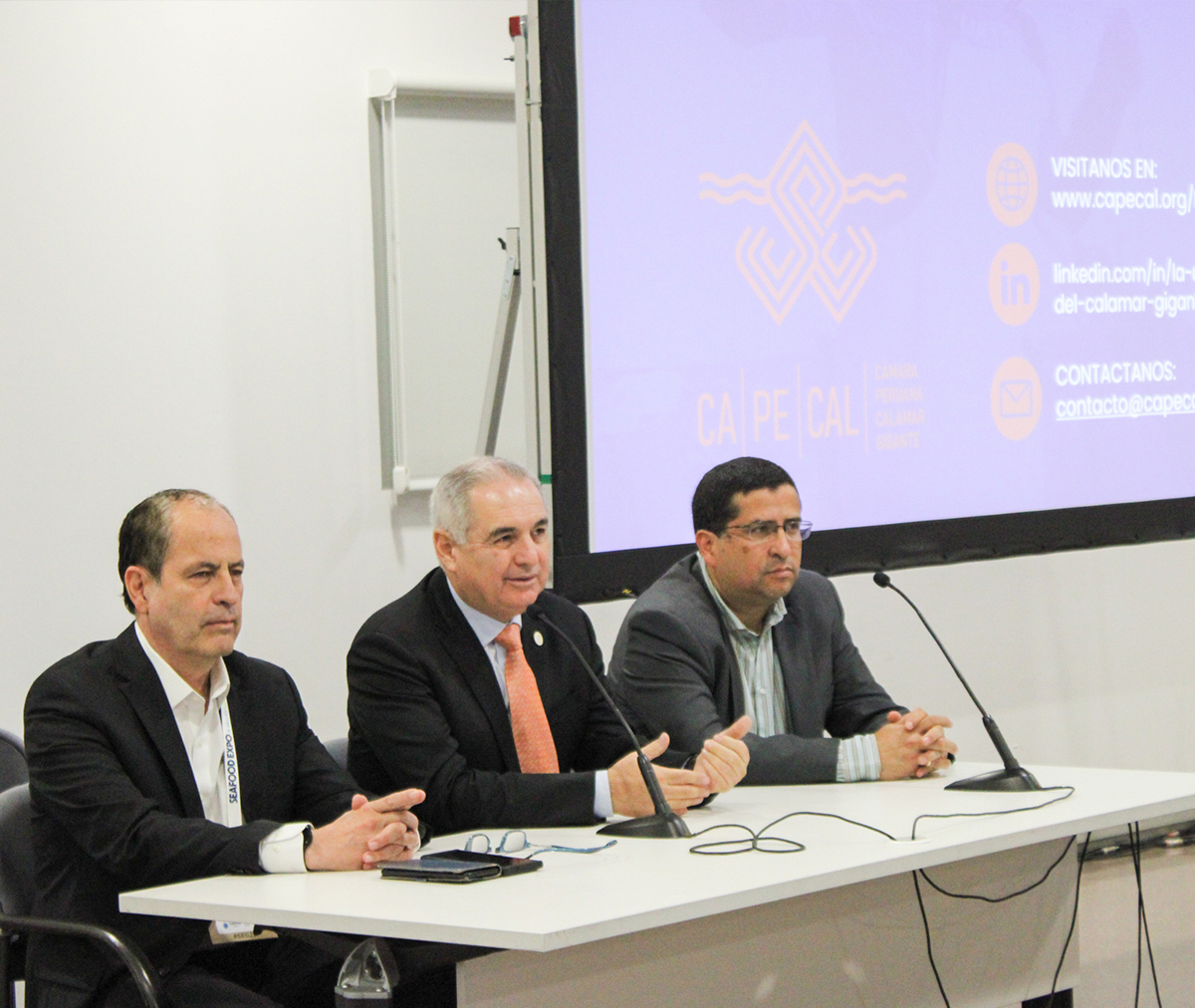The Peruvian Giant Squid Association (CAPECAL -in Spanish), is an association made out of 17 Giant Squid processing and exporting companies in Peru. It promotes the sustainable management of the species, also known as the Pacific Squid. It is headed by Gerardo Carrera, General Manager of Produmar, who presented its progress at the Seafood Global Expo in Barcelona.
During the presentation ceremony, the Chamber announced the Giant Squid Fishery Improvement Program (FIP -in Spanish) and launched its institutional seal. It represents the permanent commitment of its members to the sustainability of the squid resource and an invitation to the food sector to locate and identify the companies and products committed to the Giant Squid FIP.
Among the most relevant developments reported by CAPECAL, is the agreement signed with the Peruvian Institute of Sea (IMARPE), in association with APAMARPA – a northern Peruvian artisanal shipowners´ association – whose main objective is to carry out the first giant fishing survey operation, with the participation of the artisanal fishing fleet, accompanied by IMARPE observers on each vessel.
This operation will set a milestone in Peru´s fishing history, showing that positive interaction is possible between the government, represented by IMARPE, the business sector, represented by CAPECAL, and the artisanal fishermen, represented by their union APAMARPA.
As part of the Profand Group´s commitment to community and environmental development, our company in Peru, Produmar, has been working for years to support and promote artisanal fishing, a locally based activity that promotes cultural roots, generates employment in seaside communities and uses non-invasive methods while respecting the eco-balance of the marine ecosystems.
Since the project began, about 3,500 artisanal vessels have engaged in this process, positively impacting more than 20,000 artisanal fishermen, and they have reached the maximum level of classification progress in compliance with the Fishery Progress evaluation requirements.
